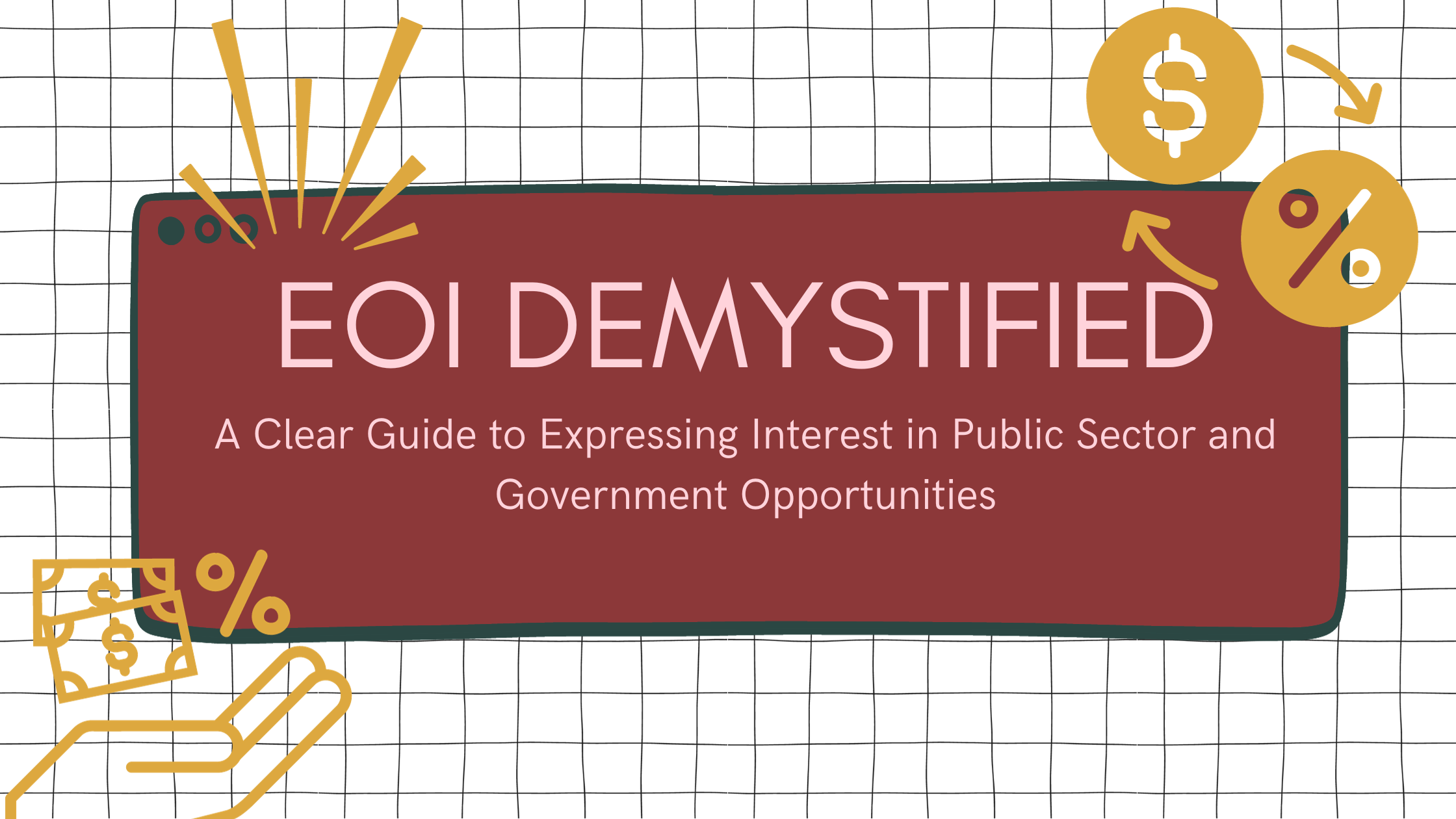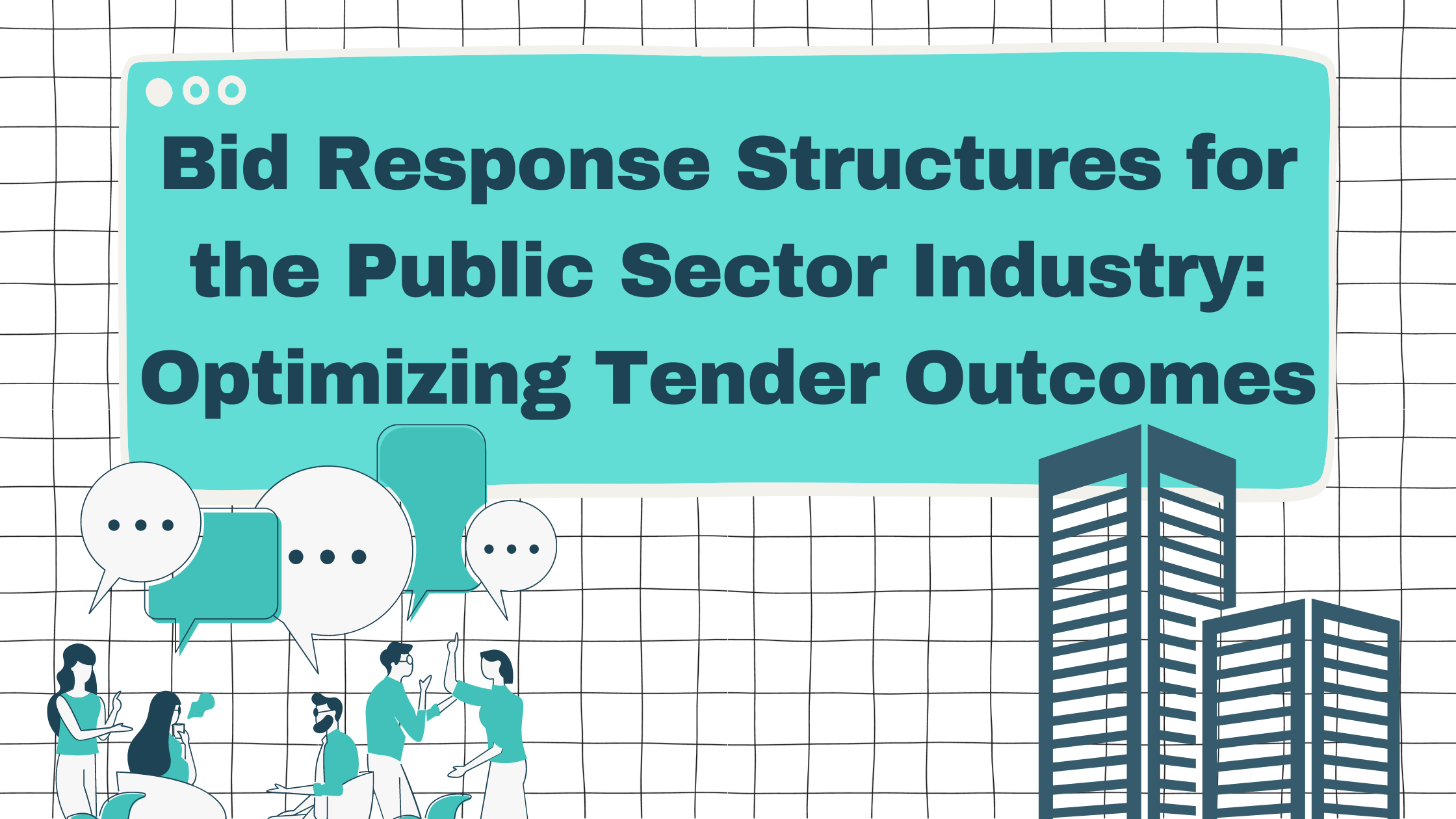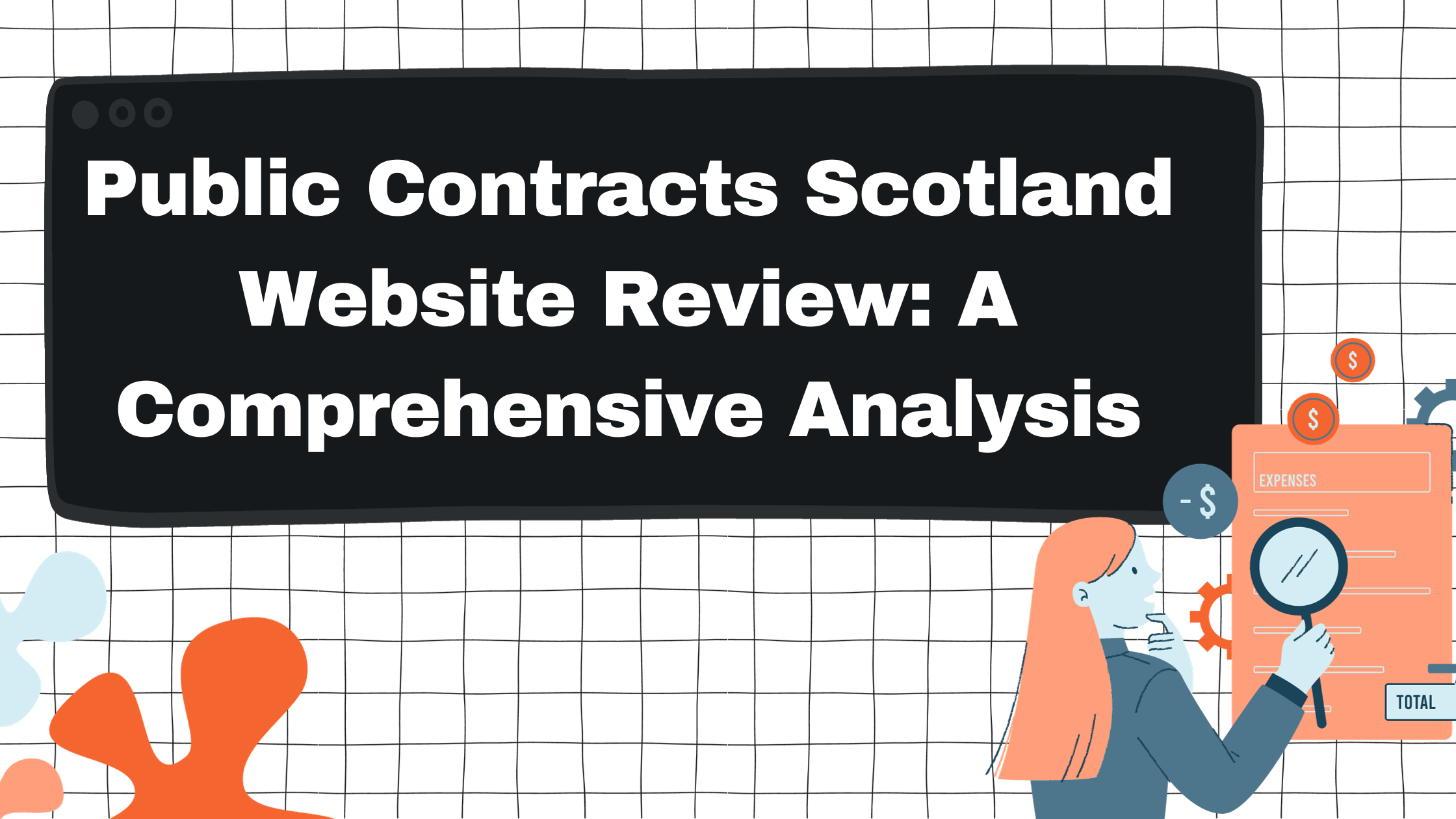Efficient RFP and Proposal Writing Services for 2024: Streamlining Vendor Solicitations

Need Help with Your Bid?
Get in touch by filling out the form and one of our advisors will be in contact.
Contact UsTop RFP Software: 2024's Leading Solutions for Efficient Proposal Management
Request for Proposal (RFP) software streamlines the process of soliciting proposals from vendors and service providers. It is an essential tool for businesses looking to efficiently acquire new services or products. Such software allows organizations to create RFPs, manage responses, and compare offerings in a structured and fair manner. As companies aim to optimize their procurement process, the RFP software market has responded by offering a myriad of solutions, each with different features and capabilities.

Choosing the right RFP software is critical; it can have a significant impact on the success of an organization's procurement strategy. Key features to look out for include automation, which can save time by managing repetitive tasks, and collaboration tools that facilitate communication between stakeholders. With security and compliance being top concerns, leading RFP software also provides robust measures to protect sensitive data and ensure adherence to regulations. Adapting to industry trends and integrating with existing systems can further enhance the utility of the software.
Key Takeaways
- RFP software enhances the procurement strategy by offering structured proposal management.
- Security, automation, and collaboration are pivotal features of top-tier RFP software.
- The right RFP software must align with industry trends and integrate with current systems.
Key Features of Top RFP Software
Selecting top-tier RFP software involves evaluating a range of features designed to streamline the RFP process. These features not only save time but also improve the quality of RFP responses.
Templates and Content Libraries
Top RFP software typically includes extensive template libraries that help standardize RFP creation and responses. The availability of customizable templates enables users to maintain a professional look across all documents while adapting to specific proposal requirements. Moreover, a comprehensive content management system is key, permitting teams to store, organize, and quickly retrieve past responses, images, and company information.
Automation and Workflow Management
Automation is paramount in mitigating mundane tasks, such as auto-populating fields and scheduling follow-ups. Workflow management features keep the RFP process on track, allowing clear visualization of a proposal's status and automated reminders to ensure deadlines are met. In essence, the workflow is optimized for efficacy, offering users a chance to focus more on content quality rather than process intricacies.
Collaboration Tools
The RFP process often requires input from different stakeholders. Hence, top RFP software offers robust team collaboration tools, which include options for real-time editing, version control, and commenting. This ensures a cohesive RFP response process where contributions from various departments are seamlessly integrated and reviewed.
Integration Capabilities
Integration capabilities are crucial to leverage existing infrastructure such as Microsoft Word or SharePoint. Advanced RFP software options provide API integrations to connect seamlessly with CRM systems, financial software, and other essential tools, thereby creating a centralized, interconnected workspace optimized for efficiency.
Security and Compliance
When choosing RFP software, it is crucial to assess its capacity for protecting sensitive data and ensuring compliance with industry regulations.
Data Protection and Security Features
The top RFP platforms incorporate robust security features to safeguard user data. These features often include data encryption both in transit and at rest, ensuring that confidential information remains secure from unauthorized access. Many platforms also conduct regular security audits and vulnerability tests to maintain a strong security posture. Loopio, for instance, is commended for helping businesses supercharge and scale their response process for RFPs including managing security questionnaires.
Compliance Standards
Compliance is another cornerstone of reliable RFP software. A leading RFP platform will generally support adherence to global and industry-specific regulations such as GDPR, HIPAA, or SOC 2. This is integral for companies that must demonstrate compliance through due diligence questionnaires and security questionnaires as part of the RFP response process. For businesses operating across borders, the software's compliance measures must be robust enough to satisfy multiple regulatory environments.
Evaluating and Selecting RFP Software
When selecting RFP software, it's crucial to scrutinize vendor credibility, understand diverse pricing models, and explore the extent of customer support and services offered. This ensures that the chosen software aligns with organizational requirements and budget constraints, while also fostering efficient proposal management processes.
Assessing Vendor Credibility
Choosing credible vendors is pivotal in the acquisition of RFP software. Potential buyers should investigate vendors' market presence, customer testimonials, and independent ratings, such as those found on software comparison platforms like Capterra. Evaluating the breadth of case studies presented by vendors reveals their experience across various industry sectors, which can offer assurance of the software's adaptability and performance.
Understanding Pricing Models
Pricing is a critical aspect when procuring RFP software. Vendors typically offer a range of pricing options, from free versions with limited capabilities to comprehensive, paid tiers that include advanced features such as proposal automation and customer relationship management integrations. Detailed scrutiny of the long-term costs versus benefits is necessary to choose a model that balances functionality with affordability.
Exploring Customer Support and Services
Support and services accompanying RFP software can play a significant role in its successful deployment and utilization. Businesses should probe the levels of post-purchase support, including onboarding assistance, ongoing technical support, and training opportunities. Vendors that offer robust service provisions help ensure the seamless operation of the RFP software, contributing to a positive impact on the proposal management process.
Benefits of Utilizing RFP Software
When it comes to modernizing procurement, Request for Proposal (RFP) software plays a pivotal role. Organizations benefit from improved quality of RFP responses and accelerated procurement workflows, thereby enhancing overall sourcing strategies.
Enhancing Response Quality and Speed
The adoption of RFP software leads to a significant increase in the quality and timeliness of responses. With a repository of pre-designed templates and historical data, responders can generate consistently high-quality proposals efficiently. For instance, these platforms often feature advanced editing tools and a centralized database that ensures that all responses are accurate, comprehensive, and submitted promptly.
Streamlining the Procurement Process
The procurement process is greatly streamlined by the use of RFP software. Organizations can track numerous RFPs simultaneously using intuitive dashboards, which provide real-time reporting and vital analytics. This enables procurement teams to oversee the entire RFP process, from the initial request to the final decision. In addition, automation features reduce the manual effort required in the sourcing process, which includes managing RFIs (Requests for Information) and RFQs (Requests for Quotes), thus optimizing the entire procurement workflow.
Adapting to Industry Trends

The RFP software landscape is swiftly evolving, with artificial intelligence and cloud-based solutions taking center stage to address the dynamic demands of modern businesses.
Innovation through Artificial Intelligence
Artificial intelligence (AI) is revolutionizing RFP software by automating complex processes and enhancing decision-making. AI-driven tools are now capable of analyzing historical data to suggest improvements to RFP content, helping users to optimize their proposals. For instance, platforms reviewed on TechRadar highlight how AI can streamline the creation and management of RFPs, shortening response times and increasing the chances of winning bids.
The Rise of Cloud-Based RFP Solutions
The shift towards cloud-based platforms is undeniable in the RFP software domain. These platforms offer the benefits of scalability, accessibility, and collaboration. A trend observed on Gartner points out that the best RFP software of 2023 extensively employs cloud technology to allow teams to work simultaneously from different locations, ensuring real-time updates and version control. As indicated on Capterra, well-received RFP solutions come equipped with collaborative tools and content management capabilities, essential for adapting to current industry trends.
Frequently Asked Questions

In selecting RFP software, it is pivotal to understand the unique features, industry rankings, template offerings, suitability for specific sectors, scalability for small to medium-sized enterprises, and the availability of open-source options.
What are the top features to consider when selecting RFP software?
When choosing RFP software, key features to consider include the ability to store and organize commonly used information, collaboration tools for team-based responses, and advanced analytics for tracking performance. Software that simplifies the RFP process is highly beneficial for proposal managers and sales teams.
How do leading RFP software solutions compare according to industry analysts like Gartner?
Leading RFP software solutions are evaluated by industry analysts on usability, collaboration capabilities, and the diversity of integrations they offer. Gartner and other analysts provide comprehensive comparisons and rankings, assisting businesses in making informed decisions. Specific comparisons can be found through detailed industry analyst reports.
What are some recommended RFP templates for streamlining the procurement process?
RFP templates are essential for standardizing and streamlining the procurement process. They provide a structured format for soliciting information from vendors and can greatly reduce the time spent on creating documents from scratch. Numerous templates are available to cater to various industry needs.
Which RFP software platforms are well-suited for government contracting?
For government contracting, RFP software platforms need to be compliant with strict regulatory standards and often include features like security questionnaires and detailed tracking. Certain platforms specialize in meeting these government-specific requirements, offering tailored functionalities for this sector.
What are the best RFP management tools for small to medium-sized businesses?
Small to medium-sized businesses benefit from RFP management tools that are cost-efficient, easy to use, and scalable. Tools that offer these attributes can greatly enhance the proposal process for these businesses, providing them with the means to compete effectively in the marketplace.
Are there any open-source RFP software options that offer robust features?
While open-source RFP software options are less common, they can provide customizable and cost-effective solutions for businesses that have the capability to support their own IT infrastructure, but they may require additional development for a full spectrum of features.
Ready to start your search?
Get in touch by filling out the form to the right and one of our advisors will curate a personalised selection for you.
Get in touchBlogs. Guides. Helpful advice.

Mastering Proposal and RFP Writing for Government and Public Sector Opportunities

Proposal and RFP Writing Services: Enhancing Public Sector Tender Outcomes

.svg)